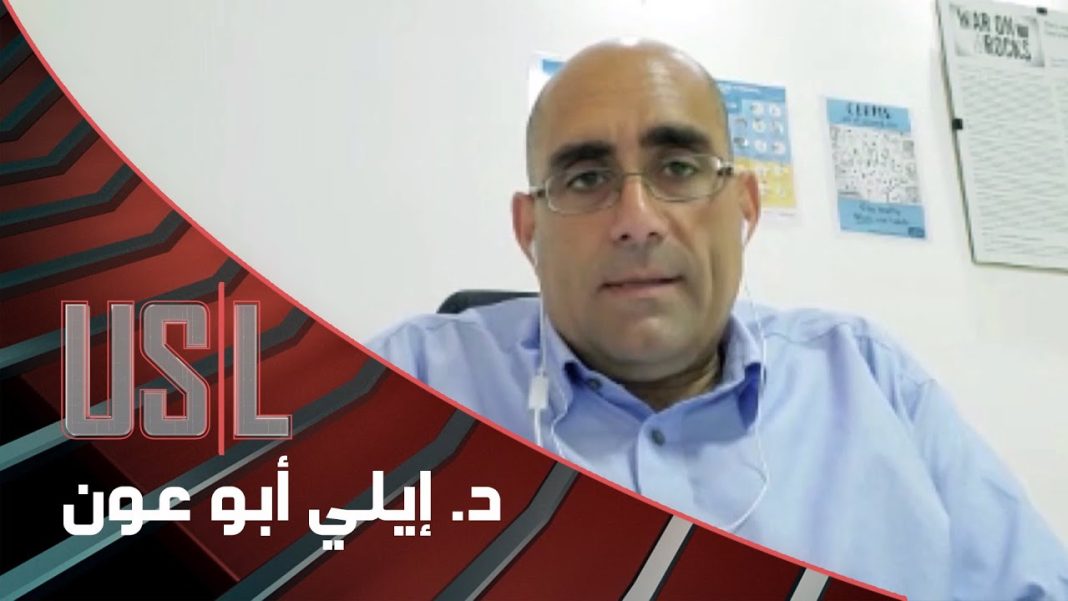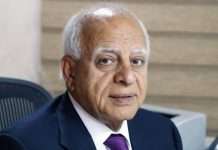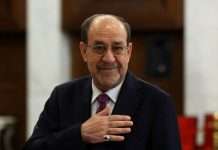العبثية الدولية لا تقدر أن تساعد دولة لبنان الفاشلة
د. ايلي أبو عون/الإسبوع العربي/10 آذار/2023
International absurdity cannot help Lebanon’s failed state
Dr. Elie Abouaoun/The Arab Weekly/March 10/2023
There is an absolute political and moral imperative to protect the Lebanese civilian population, through concrete action such as individual sanctions, from the acts of its own political and business elite.
Multidimensional poverty in Lebanon rose from 53% (pre-2019) to 82% in 2019, because of what the World Bank described as a deliberate depression orchestrated by the country’s elite and one of the top three most severe economic collapses worldwide since the 1850s.
Moreover, it has been more than two years during which this same elite has obstructed the investigation into one of the largest non-nuclear blasts in recent history that killed more than 200 people, injured 7,000 and caused an estimated $15 billion of damage. Yet, all the while the international community continues with a criminal “softly-softly” approach towards Lebanon.
Holding the community of nations solely responsible for Lebanon’s mess is not only unfair, but essentially preposterous. It is clear by now that some Lebanese citizens easily qualify as perpetrators, while the rest are either unwilling or unfit to be part of a solution, are held hostage by the current elite, or just idle babblers, too politically immature to conceive and execute a way out of the quagmire.
Despite the absence of a precise legal definition of a “failed state”, along with the controversy over the term’s usage, the concept has become, since it emerged in the 1990’s, increasingly important in international law, as it can have significant implications for international security and humanitarian intervention. It usually refers to a state that has lost effective control over its territory, government and population and is unable to provide basic services, maintain law and order and protect its citizens’ rights and freedoms.
Overtime, frameworks for identifying and dealing with failed states have been developed by international organisations capturing various buckets of state failure indicators, most of which do apply to Lebanon.
With the largest number of refugees per capita, Lebanon is a country with significant demographic pressure, human flight and brain drain as well as collective social grievances. The country faces increasing poverty and continuous economic decline, along with eroded state legitimacy and dwindling public services, as well as a poor record on human rights and the rule of law. The factionalised security apparatus is unable to deter crime, protect the public and does not possess a monopoly on the use of force.
Most of the liquid assets of the population are stuck in a barely-functioning banking system and thus not accessible, while the country has defaulted on its sovereign debt since March 2020. After the end of the presidential mandate in October 2022 and the failure of the parliament to elect a successor to the outgoing President Michel Aoun, the caretaker government remains paralysed due to political bickering and constitutional ambiguity about the legality of its meetings. Until a new president is elected, besides executive power being incapacitated, the parliament’s activity is restricted by the constitution to being simply an “electoral college”, thus depriving the country of much-needed legislative and oversight activity.
Lebanon’s judiciary has always been instrumentalised by the political and business elites. However, the implosion within the criminal justice system in the last few months is unprecedented, not even under the Syrian occupation of Lebanon between 1990 and 2005. Various rankings show Lebanon as one of the most corrupt 30 countries in the world. With a severely deficient regulatory framework for judicial accountability, Lebanon faces the consequences of decades of compounded impunity.
In brief, Lebanon is a country with endemic corruption, dysfunctional legislative, executive and judiciary powers, where services are hardly accessible and poverty rates are alarming. Since protecting its people is a fundamental part of the exercise of the national sovereignty of a state, it is clear that the Lebanese authorities do not have the political will nor the ability to fulfil this critical mission. Nevertheless, the international community has failed to target the country’s criminal political elite beyond mere rhetoric and sporadic empty threats of individual sanctions that were never put into action, with rare exceptions.
Long gone is the time when a similar situation would have been considered by world powers as sufficiently alarming to enact the “responsibility to protect” principle and bring about some sort of international tutelage over a given country. Lebanon may not be as fortunate as Namibia (1968), Cambodia (1992), East Croatia (1996), Kosovo (1999) or East Timor (1999) and it may be too naïve to expect a revival of the inert UN Trusteeship Council mechanism, inactive since 1994.
Some Lebanon pundits have even been contemplating, for a while now, a possible match between what is happening in Lebanon and the international legal definition of “genocide’ or “crimes against humanity”. Legal experts generally concur that characterising the events in Lebanon as an “atrocity” as defined in international law is somehow fanciful from a purely legalistic perspective.
However, the normative framework of the “responsibility to protect” requires all states to protect another state’s own people when their government is incapable or unwilling to do so. The Canadian International Commission on Intervention and State Sovereignty (ICISS) challenged the absolute nature of state sovereignty, looking at the state along with sovereignty not as the absolute sum of its parts, but as conditional upon the fulfilment of obligations toward all of its parts. Furthermore, ICISS stated that the notion of sovereignty is conditional upon the security of populations. This concept, labelled as “state-centred” sovereignty assumes the state does and will continue to represent the will of its people and that the will of all its people is respected, either through some sort of special representation or benevolent rule, or for an agreed-upon democratic arrangement.
Practically speaking, the current geopolitical realities and constraints of the international community do not allow for Lebanon to be treated as a “failed state” nor putting it under international tutelage. However, there is no political nor moral justification for abandoning the Lebanese population to a fateful destiny. The question is therefore whether there could be other measures that would protect the Lebanese population from its own political and business elite, even though this same elite has been embraced by part of the population.
A range of measures, such as visa and travel bans, assets freeze, diplomatic boycotts and others, has been applied to identify and sanction corrupt individuals or organisations in the world. Obviously, the impact of these measures depends on the context and timing. But given Lebanon’s gradual collapse and even though not every measure will lead to the desired outcome, it is certainly relevant to apply some of them. This is especially so, since Lebanon’s elites are known to be quite transactional and obsessed with preserving whatever benefits they have access to. Moreover, the majority of these perpetrators continues to enjoy freedom of movement and owns real estate and business organisations in several EU countries, the US, Canada, Australia and other locations.
Most of the sanction regimes in these countries include, amongst other criteria, provisions to sanction individuals responsible for, or complicit in, gross violations of internationally-recognised human rights (such as obstructing justice in the port explosion case) or those responsible for, or complicit in, acts of corruption including bribery, misappropriation of private or public assets for personal gain or other acts of corruption.
When asked about why their countries continue a “business as usual” approach with Lebanon’s political and business elites, some Western diplomats mention the current power dynamics in the world and how impossible it is to get a UN Security Council resolution voted without being vetoed by one of the P5, or an EU resolution that requires unanimity among the 27 member states.
What these and others do not mention though is why their own governments continue to give agency to perpetrators, do not impose travel bans, diplomatic boycotts and other financial sanctions on Lebanese politicians and corrupt business elites, known to be quite mercantilist, as stipulated in their own national legislation. What else needs to happen before the international community recognises that even though Lebanon’s predicament is mostly self-inflicted, its approach to the country is absurd and that there is an absolute political and moral imperative to protect the Lebanese civilian population, through concrete action such as individual sanctions, from the acts of its own political and business elite?
*Dr Elie Abouaoun is the director of North Africa Programmes and Regional Hub at the United States Institute of Peace.
العبثية الدولية لا تقدر أن تساعد دولة لبنان الفاشلة
د. ايلي أبو عون/الإسبوع العربي/10 آذار/2023 (ترجمة موقعنا ع كويغل)
هناك واجب سياسي وأخلاقي مطلق لحماية السكان المدنيين اللبنانيين من خلال إجراءات ملموسة مثل العقوبات الفردية التي تقوم بها النخبة السياسية والتجارية.
ارتفع معدل الفقر المتعدد الأبعاد في لبنان من 53٪ قبل 2019 إلى 82٪ في 2019، بسبب ما وصفه البنك الدولي بأنه ركود متعمد دبرته النخبة في البلادالذي يعتبر واحد من أكبر ثلاثة انهيارات اقتصادية على مستوى العالم منذ خمسينيات القرن التاسع عشر.
علاوة على ذلك، فقد مر أكثر من عامين حيث أعاقت هذه النخبة نفسها التحقيق في واحدة من أكبر الانفجارات غير النووية (تفجير مرفأ بيروت) في التاريخ الحديث والتي أودت بحياة أكثر من 200 شخص وجرح 7000 وتسببت في خسائر تقدر بنحو 15 مليار دولار. ومع ذلك ، يستمر المجتمع الدولي طوال الوقت في توجهه الإجرامي “اللطيف اللطيف” تجاه لبنان.
إن تحميل المجتمع الدولي المسؤولية الكاملة عن الفوضى في لبنان ليس فقط أمرًا غير عادل ، ولكنه في الأساس مناف للعقل. من الواضح الآن أن بعض المواطنين اللبنانيين يمكن تصنيفهم بسهولة كجناة، في حين أن البقية إما غير مستعدين أو غير لائقين ليكونوا جزءًا من الحل، أو محتجزين كرهائن من قبل النخبة الحالية ، أو مجرد الثرثارين العاطلين ، غير الناضجين سياسياً لتصور وتنفيذ الطريق للخروج من المستنقع.
على الرغم من عدم وجود تعريف قانوني دقيق لمصطلح “الدولة الفاشلة” ، إلى جانب الجدل حول استخدام المصطلح ، فقد أصبح هذا المفهوم ، منذ ظهوره في التسعينيات، ذا أهمية متزايدة في القانون الدولي، حيث يمكن أن يكون له تداعيات كبيرة على المستوى الدولي. التدخل الأمني والإنساني. وعادة ما يشير إلى دولة فقدت السيطرة الفعلية على أراضيها وحكومتها وسكانها وغير قادرة على توفير الخدمات الأساسية والحفاظ على القانون والنظام وحماية حقوق مواطنيها وحرياتهم.
مع مرور الوقت، تم تطوير أطر لتحديد الدول الفاشلة والتعامل معها من قبل المنظمات الدولية التي تلتقط مجموعات مختلفة من مؤشرات فشل الدولة، ومعظمها ينطبق على لبنان.
مع أكبر عدد من اللاجئين بالنسبة للفرد الواحد، لبنان بلد يعاني من ضغوط ديموغرافية كبيرة وهجرة بشرية وهجرة عقول بالإضافة إلى مظالم اجتماعية جماعية. تواجه البلاد فقرًا متزايدًا وتدهورًا اقتصاديًا مستمرًا، إلى جانب تآكل شرعية الدولة وتضاؤل الخدمات العامة، فضلاً عن سجل ضعيف في حقوق الإنسان وسيادة القانون. الأجهزة الأمنية الفئوية غير قادرة على ردع الجريمة وحماية الجمهور وهي لا تحتكر استخدام القوة.
معظم الأصول المالية السائلة للسكان عالقة في نظام مصرفي بالكاد يعمل وبالتالي لا يمكن الوصول إليه ، في حين تخلفت الدولة عن سداد ديونها السيادية منذ مارس 2020. بعد انتهاء الولاية الرئاسية للعماد ميشال عون في أكتوبر 2022 وفشل انتخاب مجلس النواب لخليفة الرئيس المنتهية، لا تزال حكومة تصريف الأعمال مشلولة بسبب الخلافات السياسية والغموض الدستوري حول شرعية اجتماعاتها. وإلى أن يتم انتخاب رئيس جديد ، إلى جانب إعاقة السلطة التنفيذية ، فإن نشاط البرلمان مقيد بموجب الدستور ليكون مجرد “هيئة انتخابية”، مما يحرم البلاد من النشاط التشريعي والرقابي الذي تشتد الحاجة إليه.
لطالما تم استخدام القضاء اللبناني من قبل النخب السياسية ورجال الأعمال. ومع ذلك ، فإن الانهيار الداخلي في نظام العدالة الجنائية في الأشهر القليلة الماضية هو غير مسبوق، ولا حتى في ظل الاحتلال السوري للبنان بين عامي 1990 و 2005. وتُظهر التصنيفات المختلفة لبنان كواحد من أكثر 30 دولة فسادًا في العالم. في ظل وجود إطار تنظيمي شديد القصور للمساءلة القضائية، يواجه لبنان عواقب عقود من الإفلات من العقاب.
باختصار، لبنان بلد يتفشى فيه الفساد والسلطات التشريعية والتنفيذية والقضائية المختلة، حيث يصعب الوصول إلى الخدمات وتكون معدلات الفقر مقلقة. بما أن حماية شعبها هي جزء أساسي من ممارسة السيادة الوطنية للدولة، فمن الواضح أن السلطات اللبنانية لا تملك الإرادة السياسية ولا القدرة على إنجاز هذه المهمة الحاسمة. ومع ذلك ، فقد فشل المجتمع الدولي في استهداف النخبة السياسية الإجرامية في البلاد بما يتجاوز مجرد الخطاب والتهديدات الفارغة المتفرقة بفرض عقوبات فردية لم يتم تطبيقها أبدًا، مع استثناءات نادرة.
لقد ولت منذ زمن بعيد الوقت الذي كانت تعتبر فيه القوى العالمية وضعًا مشابهًا مثيرًا للقلق بدرجة كافية لسن مبدأ “مسؤولية الحماية” وإحداث نوع من الوصاية الدولية على دولة معينة. قد لا يكون لبنان محظوظًا مثل ناميبيا (1968) وكمبوديا (1992) وكرواتيا الشرقية (1996) وكوسوفو (1999) أو تيمور الشرقية (1999) وقد يكون من السذاجة جدًا توقع إحياء آلية مجلس الوصاية الخاملة للأمم المتحدة ، غير نشط منذ 1994.
بل إن بعض النقاد في لبنان يفكرون، منذ فترة، في إمكانية المطابقة بين ما يحدث في لبنان والتعريف القانوني الدولي لـ “الإبادة الجماعية” أو “الجرائم ضد الإنسانية” ويتفق الخبراء القانونيون بشكل عام على أن توصيف الأحداث في لبنان على أنها “فظاعة” على النحو المحدد في القانون الدولي هو أمر خيالي إلى حد ما من منظور قانوني بحت.
ومع ذلك، فإن الإطار المعياري لـ “مسؤولية الحماية” يتطلب من جميع الدول حماية شعب دولة أخرى عندما تكون حكومتها غير قادرة أو غير راغبة في القيام بذلك. لقد طعنت اللجنة الكندية الدولية للتدخل وسيادة الدولة (ICISS) في الطبيعة المطلقة لسيادة الدولة، واعتبرت الدولة إلى جانب السيادة ليس المجموع المطلق لأجزائها، ولكن على أنها مشروطة بالوفاء بالالتزامات تجاه جميع أجزائها. علاوة على ذلك، صرحت اللجنة الدولية المعنية بالدراسات الأمنية الإستراتيجية أن مفهوم السيادة مشروط بأمن السكان. يفترض هذا المفهوم، المسمى بالسيادة “المتمركزة حول الدولة”، أن الدولة تفعل وستستمر في تمثيل إرادة شعبها وأن إرادة جميع شعبها تُحترم، إما من خلال نوع من التمثيل الخاص أو الحكم الخيري، أو من أجل ترتيب ديمقراطي متفق عليه.
من الناحية العملية، لا تسمح الوقائع الجيوسياسية الحالية وقيود المجتمع الدولي بمعاملة لبنان على أنه “دولة فاشلة” ولا وضعه تحت وصاية دولية. لكن لا مبرر سياسي ولا أخلاقي للتخلي عن اللبنانيين. لذا فإن السؤال هو ما إذا كان يمكن أن تكون هناك إجراءات أخرى من شأنها حماية اللبنانيين من النخبة السياسية والتجارية، على الرغم من أن هذه النخبة نفسها قد تبناها جزء من السكان.
تم تطبيق مجموعة من الإجراءات، مثل حظر التأشيرات والسفر، وتجميد الأصول، والمقاطعة الدبلوماسية وغيرها، لتحديد ومعاقبة الأفراد أو المنظمات الفاسدة في العالم. من الواضح أن تأثير هذه التدابير يعتمد على السياق والتوقيت. لكن بالنظر إلى الانهيار التدريجي للبنان، وعلى الرغم من أن كل إجراء لن يؤدي إلى النتيجة المرجوة فمن المؤكد أنه من المناسب تطبيق بعضها. وهذا صحيح بشكل خاص، نظرًا لأن النخب اللبنانية معروفة بأنها تعامل تمامًا ومهووسة بالحفاظ على أي مزايا يمكنهم الوصول إليها. علاوة على ذلك ، لا يزال غالبية هؤلاء الجناة يتمتعون بحرية الحركة ويمتلكون مؤسسات عقارية وتجارية في العديد من دول الاتحاد الأوروبي والولايات المتحدة وكندا وأستراليا ومواقع أخرى.
تتضمن معظم أنظمة العقوبات في هذه البلدان، من بين معايير أخرى، أحكامًا لمعاقبة الأفراد المسؤولين عن الانتهاكات الجسيمة لحقوق الإنسان المعترف بها دوليًا أو المتواطئين فيها (مثل إعاقة العدالة في قضية انفجار الميناء) أو أولئك المسؤولين عن التواطؤ في أعمال الفساد بما في ذلك الرشوة واختلاس الأصول الخاصة أو العامة لتحقيق مكاسب شخصية أو أعمال فساد أخرى.
عند سؤالهم عن سبب استمرار بلدانهم في نهج “العمل كالمعتاد” مع النخب السياسية والتجارية في لبنان، ذكر بعض الدبلوماسيين الغربيين ديناميكيات القوة الحالية في العالم ومدى استحالة الحصول على قرار من مجلس الأمن التابع للأمم المتحدة يتم التصويت عليه دون استخدام حق النقض من قبل أحد الدول الخمس دائمة العضوية، أو قرار الاتحاد الأوروبي الذي يتطلب الإجماع بين الدول الأعضاء الـ 27 فيه.
لكن ما لا يذكره هؤلاء وغيرهم هو سبب استمرار حكوماتهم في منح الوكالة للجناة، وعدم فرض حظر السفر والمقاطعات الدبلوماسية والعقوبات المالية الأخرى على السياسيين اللبنانيين وعلى نخب رجال الأعمال الفاسدين المعروفين بأنهم تجاريون تمامًا، كما هو منصوص عليه في التشريعات الوطنية الخاصة بها. ما يجب أن يحدث أيضًا قبل أن يدرك المجتمع الدولي أنه على الرغم من أن مأزق لبنان هو في الغالب من صنع الذات، فإن مقاربته للبلد عبثية وأن هناك واجبًا سياسيًا وأخلاقيًا مطلقًا لحماية السكان المدنيين اللبنانيين، من خلال إجراءات ملموسة مثل العقوبات الفردية على أعمال النخبة السياسية والتجارية الخاصة بها؟
* الدكتور إيلي أبو عون هو مدير برامج شمال إفريقيا والمحور الإقليمي في معهد الولايات المتحدة للسلام.






















